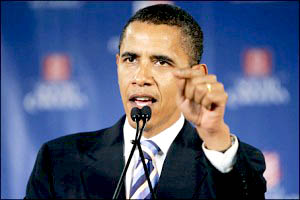Wuhan, Jun 9: China on Tuesday dismissed as "incredibly ridiculous" a Harvard study, which pointed to a surge in traffic outside Wuhan hospitals from August 2019 suggesting that the coronavirus hit the area far earlier than reported.
A whitepaper on coronavirus released by China on Sunday said the virus was first noticed on December 17 and Chinese virologists confirmed human-to-human transmission on January 19, prompting authorities to impose lockdown of Wuhan from January 23.
US President Donald Trump and leaders of several countries have accused China of not being transparent in reporting the deadly disease, leading to huge human casualties and economic crisis across the world.
The new study by Harvard researchers says satellite images show an increase in traffic outside five hospitals in Wuhan from late August to December.
The traffic spike coincided with a rise in online searches for information on symptoms like "cough" and "diarrhoea".
China said the study was "ridiculous" and based on "superficial" information, BBC reported.
It is believed that the virus first appeared in China some time in November. Authorities reported a cluster of pneumonia cases with an unknown cause to the World Health Organization (WHO) on December 31.
"Clearly, there was some level of social disruption taking place well before what was previously identified as the start of the novel coronavirus pandemic," Dr John Brownstein, who led the research, told ABC news.
The study has not been peer-reviewed.
The researchers examined commercial satellite data from outside five Wuhan hospitals, comparing data from late summer and autumn 2018 to the same time period in 2019.
In one case, researchers counted 171 cars parked at one of Wuhan''s largest hospitals, Tianyou Hospital, in October 2018.
Satellite data from the same time in 2019 showed 285 vehicles in the same place, an increase of 67 per cent.
A surge in online searches for words associated with the symptoms of coronavirus on the Chinese search engine Baidu seemed to emerge at the same time.
"This is all about a growing body of information pointing to something taking place in Wuhan at the time," Dr Brownstein said.
"Many studies are still needed to fully uncover what took place and for people to really learn about how these disease outbreaks unfold and emerge in populations. So this is just another point of evidence," he said.
Asked for her reaction at the media briefing, Chinese Foreign Ministry spokeswoman Hua Chunying dismissed the findings as "incredibly ridiculous".
"I think it is ridiculous, incredibly ridiculous, to come up with this conclusion based on superficial observations such as traffic volume," she said.
"(I have) Not seen the research you mentioned. If the conclusion is drawn based on traffic volumes (and) other superficial observations, it won’t be a sound conclusion," she said and referred to the allegations about the COVID-19 originating from the Wuhan Institute of Virology (WIV) by Trump.
"That allegation was proved to be wrong," she said.
When pointed out that China says it respects science based inquiry and Harvard is one of the top universities in the world, Hua said, "on the origin of virus there are lot of conspiracy theories against China”.
"That is very unfair. At the moment, the pressing task is to enhance coordination to contain the spread of the virus. Someday, I am sure the truth will be out. China deserves a fair and objective evaluation," she said and referred to the whitepaper released by the Chinese government detailing evolution of coronavirus in Wuhan and how Beijing handled the situation.
Recently, the World Health Assembly (WHA), the decision-making body of Geneva-based World Health Organization (WHO), passed a resolution to probe the origin of the virus. China also backed the resolution.
As of Monday, the overall confirmed cases on the mainland had reached 83,043, including 58 patients who were still being treated, with no one in severe condition, China’s National Health Commission, (NHC) said.
Altogether 78,351 people had been discharged after recovery and 4,634 people had died of the disease, it said.
 "You guys are all coming up in an age where you're not going to be able to compete with people across town for good jobs -- you're going to be competing with the rest of the world. Young people in India and China, they're all interested in trying to figure out how they get a foothold in this world economy," Obama said while addressing students in Maryland yesterday.
"You guys are all coming up in an age where you're not going to be able to compete with people across town for good jobs -- you're going to be competing with the rest of the world. Young people in India and China, they're all interested in trying to figure out how they get a foothold in this world economy," Obama said while addressing students in Maryland yesterday.




Comments
Add new comment